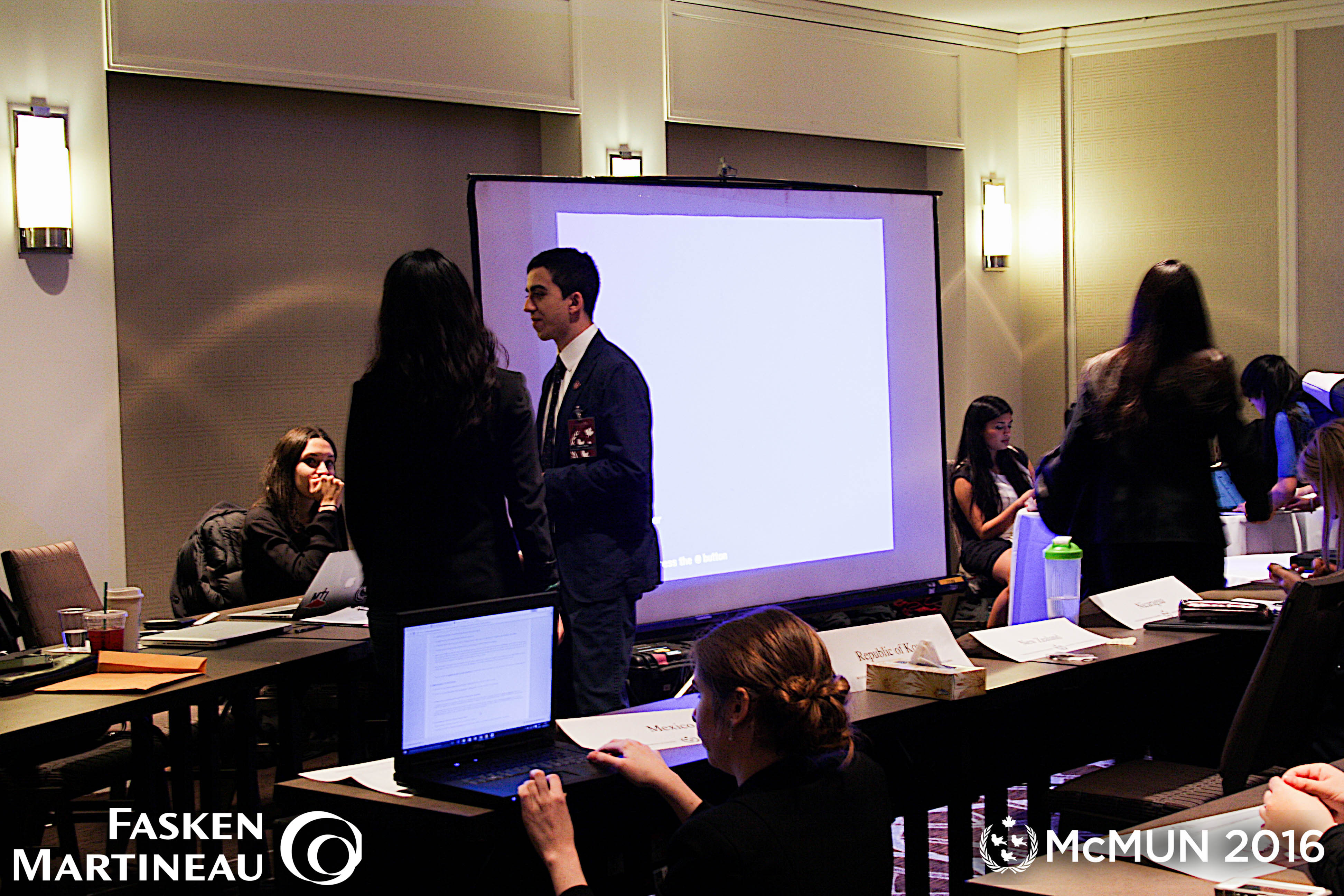The World Health Organization: global immunization erasing borders

The spread of disease is undoubtedly a concern with the power to unite nations, as pandemics can cross borders swiftly and without permission. Our perhaps greatest weapon against this silent threat is the development and administration of vaccines which, through the concept of herd immunity, can ensure the protection of millions. Consequently, the clear disparity in global immunization rates is a concern that does not discriminate.
The second committee session of the World Health Organization (WHO) opened with an enlightening presentation on this very issue. Through a discussion led by Dr. Brian Ward, a professor of Medicine & Microbiology at McGill University, the multi-faceted, structural challenges facing universal vaccine administration became apparent within minutes. Notably, the economics behind vaccine research and development are undergoing rapid change, as large firms have come to realize the growing profitability of vaccine production. This has led to a predictable hesitancy to sell this medicine to less wealthy countries. Access and distribution of vaccines in developing nations  pose an issue meriting additional consideration, as the complementary infrastructure often requires more than monetary support.
pose an issue meriting additional consideration, as the complementary infrastructure often requires more than monetary support.
Delegates were encouraged to keep Dr. Ward’s presentation in mind while formulating working papers to address global immunization administration. Committee Director Kieran Sharma said: “It’s really great that McMUN has given the delegates and staffers the opportunity to hear speakers like Dr. Ward. His presentation is very relevant to the topic at hand and the delegates are definitely going to incorporate his knowledge into their working papers today.” This sentiment was echoed by the representative of Turkey, Vivian Eberle, who described Dr. Ward’s talk as “…extremely pertinent to this committees’ topic.” Clearly, Dr. Ward left quite the impression on the WHO delegates, leading me to recognize the value of McMUN’s keynote speakers and their influential role in shaping tomorrow’s global leaders.
As committee progressed, several working papers were brought to the floor. After the session finished, I stopped to discuss the Accessibility, Security, Education Plan (ASE) with Aaron Stephens, representing the Republic of Korea, one of the working paper’s sponsors. Stephens asserted that ASE “addresses concerns that other plans do not, as a lot of people have undermined the importance of education.” He went on to describe ASE’s intention to work with existing regional and local infrastructure to ensure maximum coordination and to decrease the likelihood of ASE initiatives becoming “paternalist” in nature. In his presentation, Dr. Ward stressed both the importance of education and the need to avoid actions that contain aspects of neo-colonialism, making it quite interesting to see how delegates integrated his ideas with theirs to create workable policies.
Other issues prevalent in the working papers included the maintenance of sovereignty when receiving or sending aid, the varying needs of different regions and the cost of implementing immunization initiatives. What really struck me was the high level of cooperation between delegates, which is easily lost in simulations where students engage in zero-sum negotiation and forget what the United Nations is truly about. It seemed that everyone was in agreement with regards to the overarching goals of the WHO, with majority of dissent occurring over the methods employed in achieving these goals. In short, this committee can be expected to produce some highly interesting resolutions, as the delegates undoubtedly understand the even-handed nature of disease and the integral role world health plays in shaping a better future.
Photo credits to McMUN/Jinah Kim
